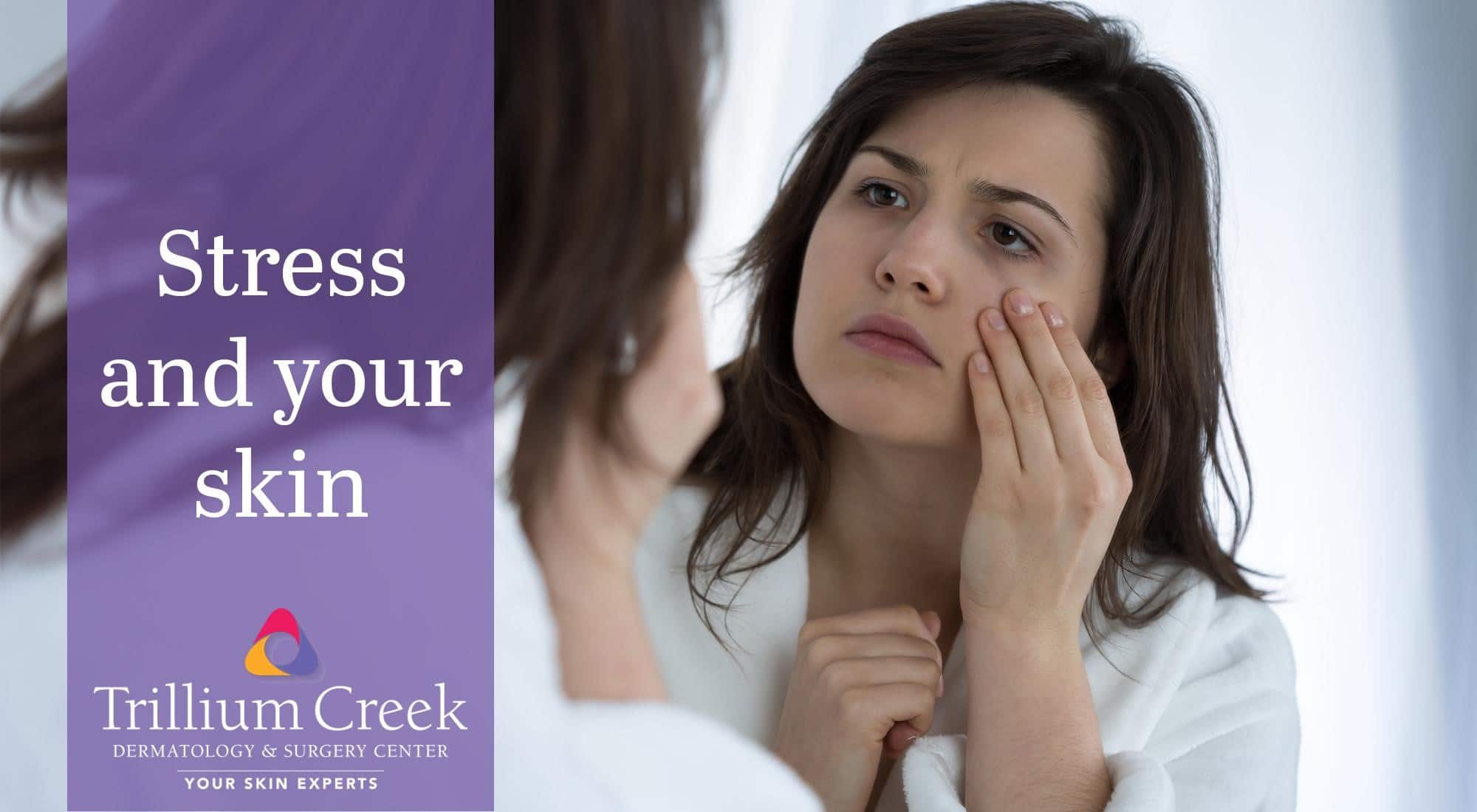
As if you needed one more thing to worry about: your skin, hair and nails can be directly affected by the amount of daily stress you’re experiencing. How is that possible? Stress can cause a chemical reaction or defense response in your body. It can also make it harder for skin irritations and diseases to heal.
Let’s breakdown a few of the most common skin conditions and how stress can affect the severity or duration of an outbreak.
Psoriasis
Papulosquamous disorders are conditions where both papules (or plaques) and scales form on the skin. These disorders affect women, men and children. Psoriasis is the most common condition in this group and is caused by overactive T cells in the immune system that trigger increased production of skin cells. The extra cells collect on the surface of the skin and form red, raised and scaly patches. Plaque psoriasis – the most common form – typically affects the elbows, knees, scalp and nails.
Psoriasis is not contagious, but it may be hereditary, and it can become itchy and painful. The stress associated with this skin condition and the effects of stress on your body can create a vicious cycle of frustration. Some individuals can actually experience their first visual episode of psoriasis during a period of extremely high stress. There is no known cure, but there are a lot of very effective treatments.
Eczema
Also known as dermatitis, this general term describes a wide range of skin conditions that have a few things in common: redness, swelling and itchiness. Eczema can affect males or females, regardless of age. Just like psoriasis, the stress of dealing with eczema can exacerbate the visible effects of this skin condition.
Eczema is classified based on location, appearance, duration and possible causes. You can find a full overview of this skin condition here. While we don’t know exactly what causes eczema, genetics and environmental triggers are commonly associated with flare ups. Every individual’s trigger can be different; it is important to identify your trigger to effectively manage flare ups.
Stress-Induced Skin Rashes
Our body’s physical reaction to stress can actually trigger an outbreak of hives. They can appear suddenly without warning and disappear just as fast! The size and location of the hive(s) can vary, but once present, they can become raised and itchy. In extreme cases, they can cause a swelling of the lips.
Hives can actually be an indication of something more severe, like an allergic reaction. ALWAYS call 911 if your hives are accompanied by shortness of breath, tightness in your throat, swelling of your tongue or face, dizziness or wheezing. You may require an emergency dose of adrenaline or steroid.
A few tips for managing stress and skin conditions:
- Focus on restorative practices such as meditation, exercise or activities you enjoy to manage stress.
- Find an expert skin professional you trust and can be honest and open with. Psoriasis and eczema can make even the smallest interactions with others stressful. It’s important to find a dermatologist that can discuss and prescribe the most effective treatment options.
Your Trillium Creek Dermatology skin experts will formulate a multifaceted treatment plan depending on the variety, severity and longevity of your condition.
About Trillium Creek Dermatology: Few places in the country offer the quality care, innovation and state-of-the-art procedures that are available at Trillium Creek. Through our integrative medicine approach, Trillium Creek offers world-class general dermatology, dermatologic surgery, laser surgery, cosmetic dermatology, skin cancer treatment, Mohs surgery and holistic medicine.

